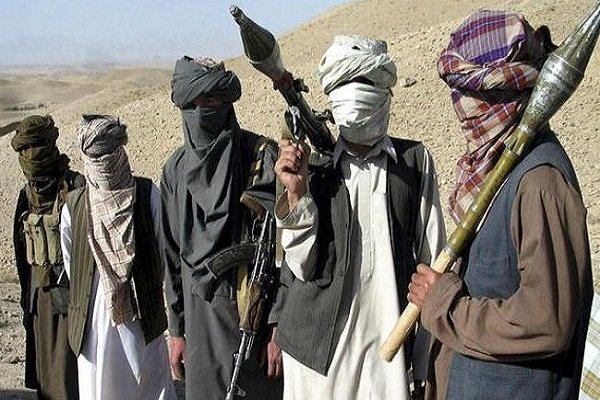Taliban accepts Afghan government's ceasefire: sparking peace or false hopes?

TEHRAN - A few days ago, in an unprecedented attempt, Taliban announced ceasefire with the Afghan government in the first three days of Eid Fitr, the holiday that caps off Ramadan.
It is the first time in nearly 17 years of conflict that the militants have declared a ceasefire, albeit a limited one.
The Taliban had never responded to any of the Afghan government's reconciliation requests. The Taliban's reaction has always been that Kabul does not have the legitimacy to make decisions, and they want to negotiate with Americans. However, this time round, the announcement of a cease-fire by the Taliban has surprised many, and the initiative is described as a turning point in the Taliban's policy.
Calling the 3-day Taliban Eid ceasefire a good message for peace, former Taliban Ambassador to Pakistan, Abdul Salam Zaeef calling on the Afghan government and the Taliban leadership to extend the ceasefire for 3 months.
The group failed to point to the Afghan government's 8-day ceasefire in announcing its decision, which means that the Taliban's decision may have been taken only to improve the image of the group. In principle, there is no step in the direction of peace, the inspiration that Ashraf Ghani and religious scholars who are attending the Kabul Summit believe.
Experts believe, Taliban's decision is sheer propaganda and demagoguery, as the group carried out bloody attacks after the ceasefire period during the eid.
Others say, the announcement of Taliban’s ceasefire acts as a “glimmer of hope” in the darkness. Afghanistan High Peace Council (HPC), a body created to end the ongoing war in Afghanistan, has called the Taliban a green light for peace.
The current chairman of the council Mohammad Akram Khpalwak has expressed hope that the location and date of talks between the Afghan government and the Taliban will soon be announced. A senior Taliban commander, Abdul Salam Rocketi described the temporary ceasefire as a golden opportunity, after which the two sides would be keen on a cease-fire, which can lead to a peace agreement between the Taliban and Afghan government.
Some political experts who are aware of the internal affairs of the Taliban also announced that the Taliban's move is indicative of the fact that the group did not just think of war, but also of peace. Secondly, the Taliban have not fully responded to the Afghan government’s request. Instead of suggested 8 days of ceasefire, the Taliban took 3 days. Third, the Taliban's move is to send a kind of good-faith message to Washington that the group is about to negotiate with the Afghan government if the U.S. forces decide to leave Afghanistan.
Meanwhile, Pakistani sources announced that the Taliban's unexpected ceasefire was the result of a joint U.S.-Pakistani effort.
Lisa Curtis, a deputy assistant to U.S. President Donald Trump and senior director for South and Central Asia at the National Security Council, has explained the U.S. is pursuing “multiple lines of effort” to promote Afghan peace. At a seminar Thursday in Washington, she said an important component of the effort is to ensure that Pakistan plays “a constructive role” in it.
“We have asked for Pakistan’s assistance in facilitating a peace process and we have sought to understand Pakistan’s own core security concerns and ensure that its interests are taken into account in any peace process,” Curtis said, while speaking at the U.S. Institute of Peace.
"In support of the Afghan government's initiative, NATO's Resolute Support Mission and U.S. forces in Afghanistan will respect the ceasefire, as it applies to the Taliban," said U.S. Secretary of State Mike Pompeo. If the insurgents do not attack them, there won’t be a strike by the international forces, he added.
Four months ago, the Afghan government administration offered the most tempting peace plan to the Taliban. Based on the scheme, talks will be held unconditional, the Taliban will be recognized as a political group, prisoners of the group will be released and Taliban leaders will be removed from the UN blacklist. The Taliban's response was that Kabul was actually trying to surrender in an “excuse for peace”. Mohammad Karim Khalili, the current chairman of the Afghan High Peace Council said peace was not to surrender to the Taliban.
At the end of the ceasefire period, it will be clear who took advantage of the opportunity for a lasting peace. Although it is expected that the Afghan government will tend to prolong the cease-fire, the same tendency won’t hold true for the Taliban.
